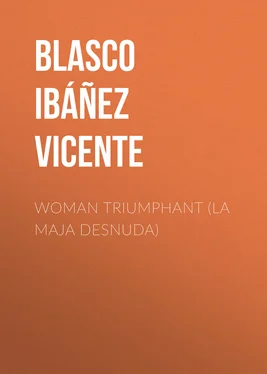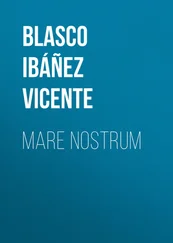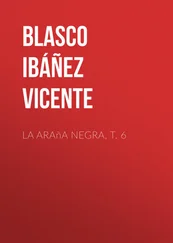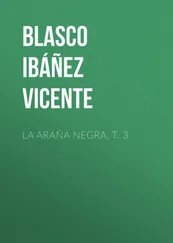Vicente Blasco Ibáñez - Woman Triumphant (La Maja Desnuda)
Здесь есть возможность читать онлайн «Vicente Blasco Ibáñez - Woman Triumphant (La Maja Desnuda)» — ознакомительный отрывок электронной книги совершенно бесплатно, а после прочтения отрывка купить полную версию. В некоторых случаях можно слушать аудио, скачать через торрент в формате fb2 и присутствует краткое содержание. Жанр: foreign_prose, foreign_antique, на английском языке. Описание произведения, (предисловие) а так же отзывы посетителей доступны на портале библиотеки ЛибКат.
- Название:Woman Triumphant (La Maja Desnuda)
- Автор:
- Жанр:
- Год:неизвестен
- ISBN:нет данных
- Рейтинг книги:5 / 5. Голосов: 1
-
Избранное:Добавить в избранное
- Отзывы:
-
Ваша оценка:
- 100
- 1
- 2
- 3
- 4
- 5
Woman Triumphant (La Maja Desnuda): краткое содержание, описание и аннотация
Предлагаем к чтению аннотацию, описание, краткое содержание или предисловие (зависит от того, что написал сам автор книги «Woman Triumphant (La Maja Desnuda)»). Если вы не нашли необходимую информацию о книге — напишите в комментариях, мы постараемся отыскать её.
Woman Triumphant (La Maja Desnuda) — читать онлайн ознакомительный отрывок
Ниже представлен текст книги, разбитый по страницам. Система сохранения места последней прочитанной страницы, позволяет с удобством читать онлайн бесплатно книгу «Woman Triumphant (La Maja Desnuda)», без необходимости каждый раз заново искать на чём Вы остановились. Поставьте закладку, и сможете в любой момент перейти на страницу, на которой закончили чтение.
Интервал:
Закладка:
When Renovales got home at dark, tired out with his work, he would find Josephina, already half dressed, waiting for him, and Cotoner helped him to put on his evening clothes.
"The cross!" exclaimed Josephina, when she saw him with his dress-coat on. "Why, man alive, how did you happen to forget your cross? You know that they all wear something there."
Cotoner went for the insignia, a great cross the Spanish government had given him for his picture, and the artist, with the ribbon across his shirt-front and a brilliant circle on his coat, started out with his wife to spend the evening among diplomats, distinguished travelers and cardinals' nephews.
The other painters were furious with envy when they learned how often the Spanish ambassador and his wife, the consul and prominent people connected with the Vatican visited his studio. They denied his talent, attributing these distinctions to Josephina's position. They called him a courtier and a flatterer, alleging that he had married to better his position. One of his most constant visitors was Father Recovero, the representative of a monastic order that was powerful in Spain, a sort of cowled ambassador who enjoyed great influence with the Pope. When he was not in Renovales' studio, the latter was sure that he was at his house, doing some favor for Josephina who felt proud of her friendship with this influential friar, so jovial and scrupulously correct in spite of his coarse clothes. Renovales' wife always had some favor to ask of him, her friends in Madrid were unceasing in their requests.
The Torrealta widow contributed to this by her constant chatter among her acquaintances about the high position her daughter occupied in Rome. According to her, Mariano was making millions; Josephina was reported to be a great friend of the Pope, her house was full of Cardinals and if the Pope did not visit her it was only because the poor thing was a prisoner in the Vatican. And so the painter's wife had to keep sending to Madrid some rosary that had been passed over St. Peter's tomb or reliques taken from the Catacombs. She urged Father Recovero to negotiate difficult marriage dispensations and interested herself in behalf of the petitions of pious ladies, friends of her mother. The great festivals of the Roman Church filled her with enthusiasm because of their theatrical interest and she was very grateful to the generous friar who never forgot to reserve her a good place. There never was a reception of pilgrims in Saint Peter's with a triumphal march of the Pope carried on a platform amid feather fans, at which Josephina was not present. At other times the good Father made the mysterious announcement that on the next day Pallestri, the famous male soprano of the papal chapel, was going to sing; the Spanish lady got up early, leaving her husband still in bed, to hear the sweet voice of the pontifical eunuch whose beardless face appeared in shop windows among the portraits of dancers and fashionable tenors.
Renovales laughed good-naturedly at the countless occupations and futile entertainments of his wife. Poor girl, she must enjoy herself; that was what he was working for. He was sorry enough that he could go with her only in her evening diversions. During the day he entrusted her to his faithful Cotoner who attended her like an old family servant, carrying her bundles when she went shopping, performing the duties of butler and sometimes of chef.
Renovales had made his acquaintance when he came to Rome. He was his best friend. Ten years his senior, Cotoner showed the worship of a pupil and the affections of an older brother for the young artist. Everyone in Rome knew him, laughing at his pictures on the rare occasions when he painted, and appreciated his accommodating nature that to some extent dignified his parasite's existence. Short, rotund, bald-headed, with projecting ears and the ugliness of a good-natured, merry satyr, Signor Cotoner, when summer came, always found refuge in the castle of some cardinal in the Roman Campagna. During the winter he was a familiar sight in the Corso, wrapped in his greenish mackintosh, the sleeves of which waved like a bat's wings. He had begun in his own province as a landscape painter but he wanted to paint figures, to equal the masters, and so he landed in Rome in the company of the bishop of his diocese who looked on him as an honor to the church. He never moved from the city. His progress was remarkable. He knew the names and histories of all the artists, no one could compare with him in his ability to live economically in Rome and to find where things were cheapest. If a Spaniard went through the great city, he never missed visiting him. The children of celebrated painters looked on him as a sort of nurse, for he had put them all to sleep in his arms. The great triumph of his life was having figured in the cavalcade of the Quixote as Sancho Panza. He always painted the same picture, portraits of the Pope in three different sizes, piling them up in the attic that served him for a studio and bedroom. His friends, the cardinals whom he visited frequently, took pity on "Poor Signor Cotoner" and for a few lire bought a picture of the Pontiff horribly ugly, to present it to some village church where it would arouse great admiration since it came from Rome and was by a painter who was a friend of His Eminence.
These purchases were a ray of joy for Cotoner, who came to Renovales' studio with his head up and wearing a smile of affected modesty.
"I have made a sale, my boy. A pope; a large one, two meter size."
And with a sudden burst of confidence in his talent, he talked of the future. Other men desired medals, triumphs in the exhibitions; he was more modest. He would be satisfied if he could guess who would be Pope when the present Pope died, in order to be able to paint up pictures of him by the dozen ahead of time. What a triumph to put the goods on the market the day after the Conclave! A perfect fortune! And well acquainted with all the cardinals, he passed the Sacred College in mental review with the persistency of a gambler in a lottery, hesitating between the half dozen who aspired to the tiara. He lived like a parasite among the high functionaries of the Church, but he was indifferent to religion, as if this association with them had taken away all his belief. The old man clad in white and the other red gentlemen inspired respect in him because they were rich and served indirectly his wretched portrait business. His admiration was wholly devoted to Renovales. In the studio of other artists he received their irritating jests with his usual calm smile of affability, but they could not speak ill of Renovales nor discuss his ability. To his mind, Renovales could produce nothing but masterpieces and in his blind admiration he even went so far as to rave naively over the easel pictures he painted for his impresario.
Sometimes Josephina unexpectedly appeared in her husband's studio and chatted with him while he painted, praising the canvases that had a pretty subject. She preferred to find him alone in these visits, painting from his fancy without any other model than some clothes placed on a manikin. She felt a sort of aversion to models, and Renovales tried in vain to convince her of the necessity of using them. He had talent to paint beautiful things without resorting to the assistance of those ordinary old men and above all, of those women with their disheveled hair, their flashing eyes and their wolfish teeth, who, in the solitude and silence of the studio, actually terrified her. Renovales laughed. What nonsense! Jealous little girl! As if he were capable of thinking of anything but art with a palette in his hand!
One afternoon, when Josephina suddenly came into the studio she saw on the model's platform a naked woman, lying in some furs, showing the curves of her yellow back. The wife compressed her lips and pretended not to see her, listened to Renovales with a distracted air, as he explained this innovation. He was painting a bacchanal and it was impossible for him to proceed without a model. It was a case of necessity, flesh could not be done from memory. The model, at ease before the painter, felt ashamed of her nakedness in the presence of that fashionable lady, and after wrapping herself up in the furs, hid behind a screen and hastily dressed herself.
Читать дальшеИнтервал:
Закладка:
Похожие книги на «Woman Triumphant (La Maja Desnuda)»
Представляем Вашему вниманию похожие книги на «Woman Triumphant (La Maja Desnuda)» списком для выбора. Мы отобрали схожую по названию и смыслу литературу в надежде предоставить читателям больше вариантов отыскать новые, интересные, ещё непрочитанные произведения.
Обсуждение, отзывы о книге «Woman Triumphant (La Maja Desnuda)» и просто собственные мнения читателей. Оставьте ваши комментарии, напишите, что Вы думаете о произведении, его смысле или главных героях. Укажите что конкретно понравилось, а что нет, и почему Вы так считаете.












